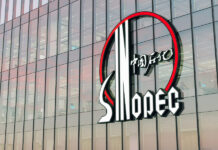Since launching in October 2015, the Chinese and British governments have had dialogue for the Shanghai Stock Exchange and the London Stock Exchange to set up the Shanghai-London Stock Connect (SLSC), which has attracted plenty of attention from the capital market.

Counsel
Dentons
Pursuant to the Administrative Measures for the Issuance and Trading of Depositary Receipts (Trial Implementation), the China Securities Regulatory Commission promulgated and implemented on 12 October 2018 the Provisions on Supervision and Administration of Depositary Receipts under the SLSC (Trial Implementation). Subsequently, the SSE issued ancillary regulations for listing and trading, preliminary review for listing, cross-border conversion, and market making under SLSC.
The SLSC refers to the stock-interconnection arrangement under which eligible companies listed on the SSE or the LSE issue depositary receipts, and the same are listed and traded on each other’s market. The depositary receipts under SLSC can be converted into underlying stocks through the cross-border conversion mechanism between depositary receipts and underlying securities, to realize connectivity of the two markets.
The SLSC has two facets: (1) LSE-listed companies, which the CSRC deems eligible, can list and trade Chinese depositary receipts in the SSE, i.e., CDRs are the securities signed and issued by the depositaries, and issued in China, based on the overseas securities (stocks listed and traded in the main market of LSE), representing the rights and interests of the overseas underlying securities (eastbound business); and (2) A-share companies listed on the SSE can list and trade global depositary receipts in the LSE, i.e., GDRs are signed and issued by the depositaries, and issued in Britain, based on the A-share securities listed in SSE, representing the rights and interests to the underlying securities issued in China (westbound business). In the eastbound business, overseas issuers can only apply issued underlying stocks for listing and trading CDRs in the SSE. In the westbound business, issuers of A-shares are permitted to issue new stocks or apply existing underlying stocks for trading GDRs in the LSE.

Senior Partner
Dentons
Under the SLSC, the shareholding structure, corporate governance and operating rules of the underlying securities issuers are governed by the laws and regulations of the places of incorporation of the issuers and there should be no prejudice against overseas investors. In the meantime, the underlying securities issuers are subject to the supervision and administration of the competent authorities and stock exchanges of the listing markets. For example, in the eastbound business, the issuer of overseas underlying securities applying for CDR issuance shall submit application documents based on the rules of the SSE and such issuance shall be approved by CSRC in accordance with the China Securities Law and the supervisory and administrative measures and guidance of the SLSC issued by the SSE. In the westbound business, the Listing Rules, the Prospectus Rules, and Rules on Disclosure and Transparency issued by British competent authorities specify the listing procedures and disclosure obligations in detail. Companies to be listed and traded on the main market of the LSE are required to meet the listing and disclosure standards. The UK Listing Authority is responsible for supervision and administration of listings.
Eligible investors under the SLSC mainly refer to members of the LSE and its qualified clients in the eastbound business and eligible institutional investors and individual investors in the westbound business. Under the SLSC, China Securities Depository and Clearing is responsible for CDR clearing and settlement, while London Clearing House and European banks are responsible for GDR clearing and settlement. In the CDR business, a depositary is a legal person in China, holding overseas underlying securities as stipulated in the depositary agreement and, accordingly, issues depositary receipts representing the rights and interests of the overseas underlying securities. Such depositaries include the CSDC and its subsidiaries, commercial banks approved by the China Banking Regulatory Commission of the State Council, and securities companies. The depositories in the GDR business are generally commercial banks.
It is worth noting that Chinese laws stipulate explicitly that any dispute between the depositary receipt holders and the issuers, depositaries, securities service providers of overseas underlying securities may be submitted to China Securities Investor Services Center Corp and other mediation organizations established, according to the law. For the dispute resolutions of the depositary agreement, Chinese laws should apply. The people’s courts in China have jurisdiction over the disputes. The dispute may also be subject to the arbitration institution with jurisdiction for arbitrations in accordance with the arbitration agreement as indicated in the Answers to the Reporters in the self-promulgated SLSC on 31 August 2018.
Recently, according to the SSE, it has accepted filings from eligible institutions for British cross-border conversion entities of GDR in respect of the SLSC. Meanwhile, the CSRC has also approved certain domestic institutions to list and trade GDRs on the LSE.
After the official implementation of the SLSC mechanism, Chinese companies may further expand their financing channels in the international capital markets and attract international investors. “Depositary receipts” have become a common tool for Chinese companies to access international capital markets. The SLSC mechanism gives Chinese companies more opportunities to explore overseas market and create international images. LSE-listed British companies also pay close attention to accessing the Chinese capital market by issuing CDRs through the SLSC mechanism. As the SLSC has not been officially unveiled, there may be more changes in policies in the future.
Willow Wei is a counsel and Hanqi Wang is a senior partner at Dentons





















